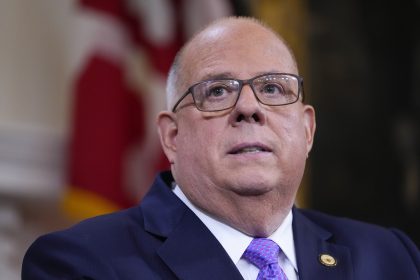‘Big Tech Preys on Children’ Says Sen. Ed Markey

WASHINGTON — When Devin Norring had dental pain and could not go to a dentist he resorted to taking a Percocet pill that was purchased on Snapchat. The pill was laced with fentanyl and the 19-year-old died in his sleep in April of last year.
Sen. Amy Klobuchar, D-Minn., recounted the incident Tuesday at a hearing convened by the Senate Commerce subcommittee on consumer protection, product safety and data security.
Norring’s tragic story was one of many shared during the hearing where executives from social media platforms Snapchat, TikTok and Google’s YouTube were grilled on what they are doing to keep children and teens safe online.
About 50% of children aged 9 to 12 use these platforms, along with Facebook and Instagram, Klobuchar said. A third of children aged 7 to 9 are also on these platforms, she added.
“I don’t think parents are going to stand by while our kids and our democracy become collateral damage to a profit game,” Klobuchar charged, pointing to parents losing their children to dangerous online challenges or mental health and eating disorders worsened by constant online exposure.
Searches done by the staff of Sen. Marsha Blackburn, R-Tenn., of self-harm on YouTube found “how to slit your wrist and painless ways to commit suicide” videos. Aside from the drug dealing issue on Snapchat, Blackburn pointed out a rising issue of sexual predators befriending children under false pretenses or stalking via location settings.
The hearing follows the recent Facebook whistleblower hearing in which Frances Haugen, former product manager at Facebook, charged the social media platform consciously put profits over the wellbeing of its users, even children.
Through algorithms, social media platforms direct their users to content and targeted advertising. The internal research Haugen provided revealed this type of targeting also directs people to increasingly unhealthy content that is particularly harmful to children and teenagers.
“Today, apps collect troves of information about kids that have nothing to do with the app service,” claimed Sen. Ed Markey, D-Mass. TikTok’s updated privacy policy, for example, now includes the ability to collect biometric data such as digital faceprints and voiceprints.
“The problem is clear: Big Tech preys on children and teens to make more money,” Markey said
The lawmakers grilled TikTok’s Michael Beckerman, the company’s head of public policy for the Americas, on TikTok’srelationship with its parent company the Beijing-based ByteDance.
Sen. Ted Cruz, R-Texas, Cruz questioned whether TikTok’s privacy policy permits ByteDance access to Americans’ personal information.
While Beckerman avoided answering the question directly, he did say that TikTok does not share any information with the Chinese government.
All three executives agreed there should be more privacy protections for children online. They also agreed that Congress should give children, teens and their parents the right to permanently erase content, and location data should only be collected with consumer consent.
All three claimed they would work with Congress if it were to draft legislation akin to the United Kingdom’s Age Appropriate Design Code which was enacted last month.
Jennifer Stout, vice president of global public policy at Snapchat, said they had worked with the U.K. Information Commissioner’s Office on the design of that legislation and have been looking at ways to implement it in their other markets. Snapchat, she added, already uses its algorithms differently, redirecting users to healthier content and only allowing mutually agreed friendships on the apps.
Stout and Beckerman also claimed support of the idea of reforming Section 230 of the Communications Decency Act, which currently acts as a liability shield for online platforms from user content they publish, so long as it does not hinder their own ability to moderate content that is harmful.
“We see [Section] 230 as the backbone of the internet…We want to make sure that we continue to have the protections in place so we can moderate our platforms so that they are safe and healthy for users,” said Leslie Miller, vice president of government affairs and public policy at YouTube.
Sen. Richard Blumenthal, D-Conn., countered, “but it’s a backbone without any real spine right now, because all it does is afford virtually limitless immunity to the internet and to the companies that are here.”
Congress will not take what these platforms say “at face value” and can no longer accept or expect voluntary action by Big Tech to self-police, Blumenthal warned.
“The time for platitudes and bromides is over,” he said.
Victoria can be reached at [email protected].























